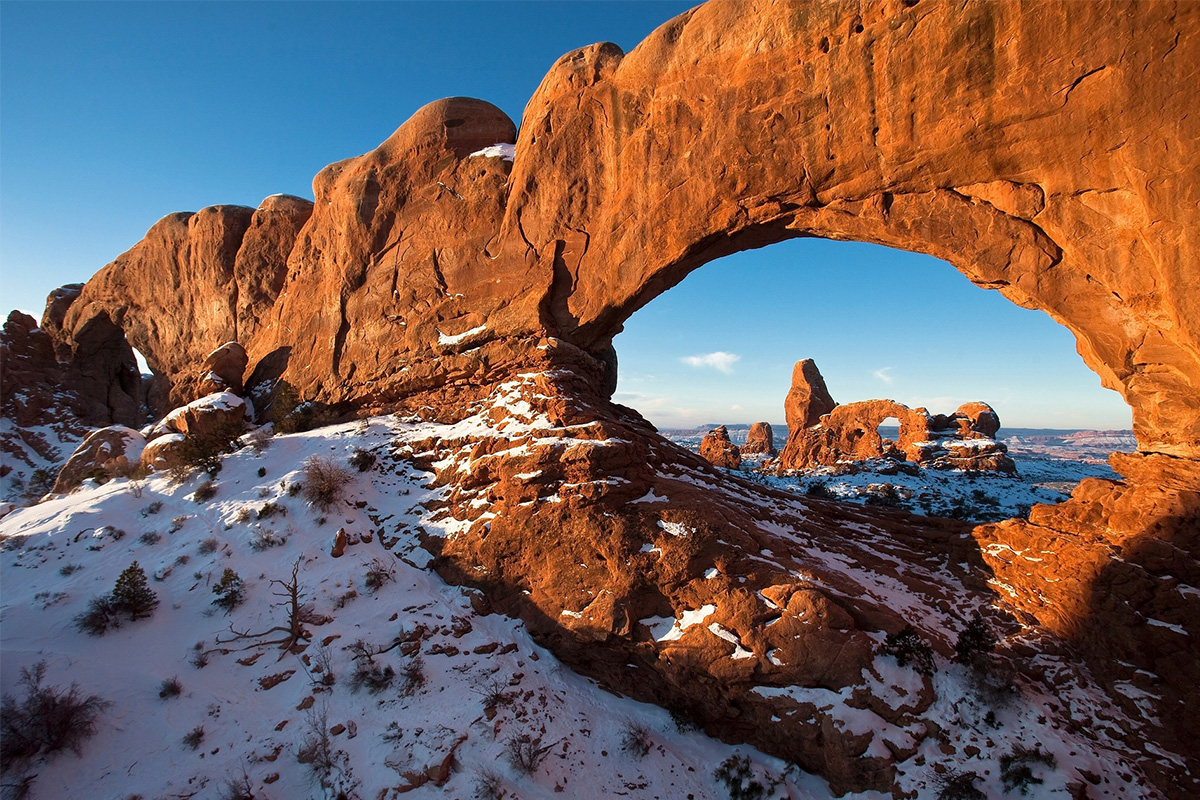What’s it like being Jewish in Utah? Well, there’s one Jewish deli in Salt Lake City and one good bagel place (both owned by Jews, naturally). There are eight synagogues in the whole state of Utah, ranging from Reconstructionist to Orthodox. Living in Utah as a Jew is like a scavenger hunt: You have to be looking to find Jewish life, but it’s there.
Utah culture is rooted in religion; everything about the state screams spirituality, from its long history with Mormonism to the purple sunsets over the mountains that will make anyone believe in a higher power.
Moving here as an outsider from California was shocking, to say the least. I came for the mountains, extended ski season, national parks, and academics. I did not come to Utah in search of a Jewish community, nor did I expect to find one. Recent estimates put the Jewish population at around .2% of the total population (around 6,500 people).
But it’s actually the small Jewish community I’ve found here that has made me fall in love with living here. It may sound corny, but the Jewish community in Utah found me and helped me embrace my Judaism.
The first thing to know about Utah’s Jewish population is that it’s growing — and thriving. The University of Utah, where I attend, has seen a large influx of Jewish students in recent years (which could be due to Salt Lake City and Utah’s insane growth in general; 400,000 people have moved to Utah in the past decade).
Dana Tumpowsky, the executive director of Hillel for Utah, has seen a rise in engagement with Jewish life. “More and more people of all faiths move here from out of state for employment, college, and the beauty of the environment. Awareness of the local Jewish organizations is growing as well and contributes to the growth of the Jewish community,” she told me.
This rings true to my experience. The Jews who I’ve spoken to are usually transplants from elsewhere in the United States. For some, their company asks them to transfer; for others, they come for an education, or maybe just to ski. And, they stay.
Take the leadership of Utah’s largest synagogue, Kol Ami, for example. Sarah Kayne, the youth director, recently relocated from Southern California and has found a permanent home in Utah. As she explained to me, “I love being here, because we get to really redefine what it means to both be and do Jewish.”
Kol Ami’s rabbi, Sam Spector, told me that the congregation has grown by 15% this past year. “There’s nowhere in the world that’s like being Jewish in Utah,” Rabbi Sam told me. “We have better retention and more involvement then any other place in the country; people don’t stop coming after their kids’ b’nai mitzvah.” While this could just be a rabbi bragging about his congregation — it feels true to me.
A recurring comment I hear from these transplants is that being in a place with significantly fewer Jews has made them more observant and more vocal about their Judaism.
“I don’t think being in Utah has made me inherently more Jewish. However, I do think it’s caused me to be more involved in and conscious of my Judaism because of the small but close-knit Jewish community in Salt Lake City,” Jacob Olson, a current student at the University of Utah, explains to me.
But it’s not all great. Like elsewhere in the United States, the Jewish community in Utah must confront rising anti-Semitism. However, most of the anti-Semitic comments seem to stem from ignorance rather than hatred, as non-Jewish Utahns often haven’t ever met a Jewish person.
“Utah, in general, is less knowledgeable about Jews,” Rabbi Avremi Zippel, from Chabad Lubavitch of Utah, tells me. “But as Utah becomes more Jewish, the attitude of the Utah Jews remains the same. Proud of their Judaism.” He went on to say, “Growing up Jewish in Utah shaped who I am.”
Of course, this being Utah, the Jewish community here has long held a relationship with the Mormon Church. In 1854, Julius and Fanny Brooks became Utah’s first Jewish family. Fanny Brooks was the first Jewish woman to settle in Utah, and she gained local fame by becoming a successful businesswoman and an important member of early Salt Lake City society. To maintain close relations with the Mormon Church, the Brooks children attended Sunday school. Yet, they were still outwardly Jewish and had a very large part in establishing the early Jewish community in Utah.
When Mormon leader Brigham Young issued an edict not allowing Mormons to do business with non-Mormons in 1868, Fanny demanded to have a private meeting with him,. after which he agreed to let Mormons stay at her boarding house and purchase goods from her shop. Later in life, Brigham Young donated land for the first Jewish cemetery in Salt Lake, B’nai Israel Cemetery.
And then there was this past Rosh Hashanah, when the power went out at Congregation Kol Ami. Instead of cancelling services, Rabbi Spector reached out to a nearby Mormon church, and they immediately opened their doors. The hundreds of Kol Ami congregants that night attended services at a church. Rabbi Spector was so grateful, explaining, they “totally saved us that evening. Ever since the beginning, Jewish folks have had a good relationship with the church.”
In its own way, Utah has cultivated a tight-knit, unique Jewish community that is unrivaled. Who knew that Utah would also be “the place” for the Jewish people?
Image by Skeeze/Pixabay



